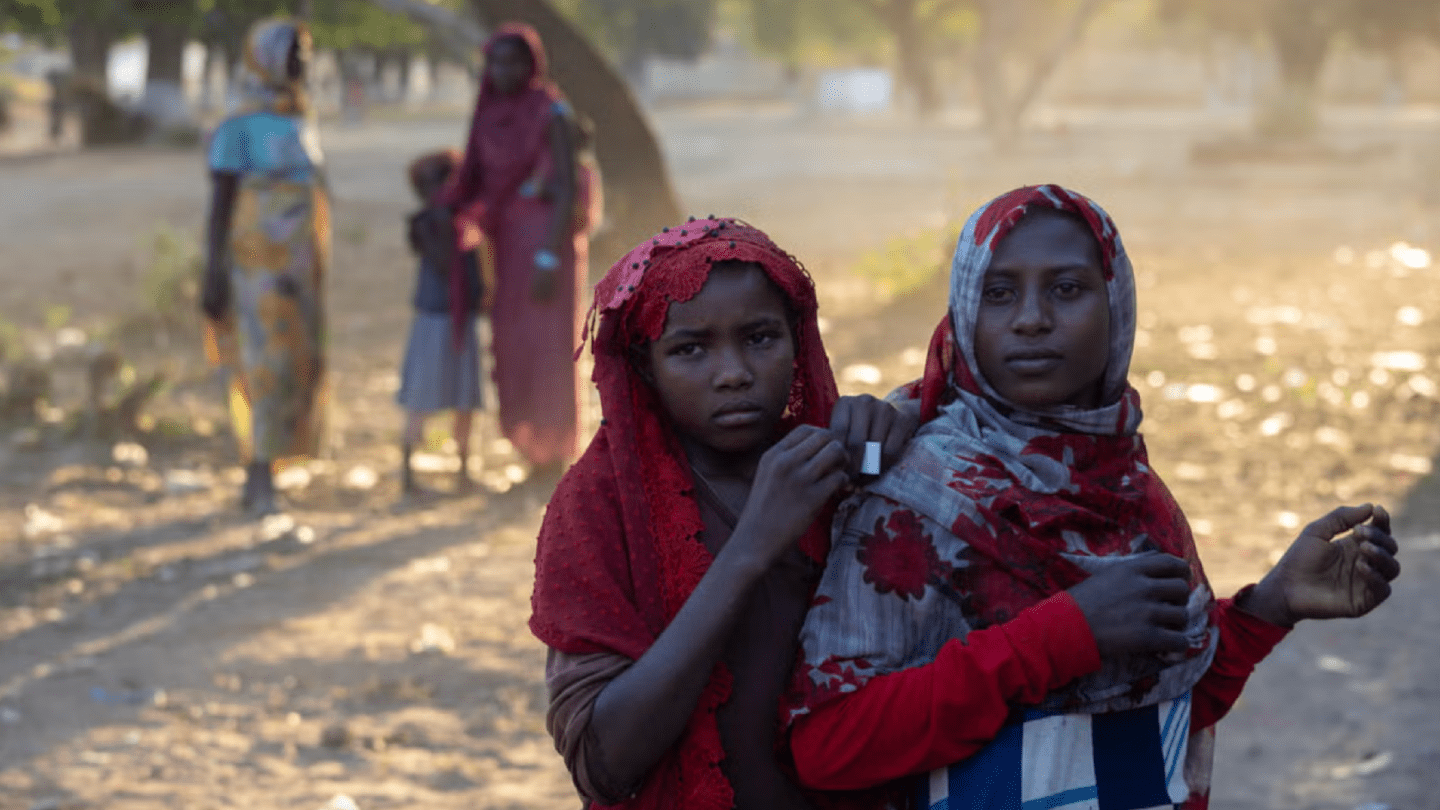CAIRO, 4 June 2025 – Hundreds of thousands of women and girls in Sudan are being left without access to emergency obstetric care or support after rape, as conflict, access constraints and devastating funding cuts cut off care and gut essential health services. UNFPA, the United Nations sexual and reproductive health agency, warns that without immediate support, women and girls will continue to pay for this crisis with their lives.
Pregnant women in crisis
Gynaecologists, nurses and midwives tell UNFPA they are witnessing more and more displaced pregnant women arriving at facilities in desperate condition after months without care, often suffering complications from constant distress, malnutrition, and physical exhaustion. Balghis, a UNFPA-supported midwife in Gedaref state told UNFPA: “By the time they reach us, it’s often a race against time to safeguard the health of the mother, the baby, or both. These are not isolated cases; they are becoming the norm.”
Over 1.1 million pregnant women in Sudan currently lack access to antenatal care, safe delivery, and postpartum care due to persistent insecurity, access limitations and inadequate funding, according to WHO. Recent funding cuts by donors have forced UNFPA to withdraw support from more than half of the 93 health facilities it was funding. In the areas most severely affected by fighting, including the regions of Al Jazirah, Kordofan, the Darfurs, and in the capital, Khartoum, 80 percent of health facilities are barely functional or completely shut down.
Rape survivors left without protection
UNFPA’s gender-based violence prevention and treatment services have also undergone sharp cuts, forcing the organization to scale back services to survivors escaping violence and to shutter 11 out of 61 safe spaces. These spaces provided safety, counselling, medical treatment and legal referrals to survivors of rape. Only one in four facilities offering clinical management of rape services across all 18 States are currently fully operational, with the Darfurs and Kordofan the most severely affected.
Around 12.1 million people in Sudan — nearly one in four, most of them women and girls — are now at risk of gender-based violence. Demand for gender-based violence services tripled last year, and more than half of those who sought support at UNFPA-supported facilities had been exposed to rape or other forms of sexual assault.
Dina, a gender-based violence specialist in Sudan, told UNFPA: “The scale and brutality of violations are beyond anything we’ve previously documented. We have documented numerous cases of adolescent girls who have survived rape and sexual violence. Many are left coping with the consequences, including unwanted pregnancies, sexually transmitted infections, and deep psychological trauma. It will take decades to recover from this. Yet the survivors we work with are still fighting to survive, to raise their voices, and to access justice.”
Chronic underfunding puts women and girls at further risk
Funding for gender-based violence prevention and response has been woefully inadequate for years. In 2024, humanitarian donors provided less than 20 percent of the $62.8 million required to tackle gender-based violence in Sudan. When combined with the deep cuts this year to sexual and reproductive health services which are inextricably linked to gender-based violence services, the service gap is expected to widen.
“The world is turning its back on the women and girls of Sudan,” said Laila Baker, UNFPA Arab States Regional Director. “Cuts to humanitarian funding are not just budget decisions — they are life-and-death choices. When the services that protect women’s health, safety and dignity vanish, what message do we send? That their suffering is invisible. That their lives don’t matter. This is unacceptable.”
UNFPA calls on international donors to step up with immediate, urgent funding for Sudan’s women and girls. Silence and inaction are a choice. Donors must act now — lives depend on it.
Available resources
Photos from a UNFPA-supported health centre and women and girls’ safe spaces in Gedaref and Kassala are available here: They are free to use with credit to ©UNFPA.
To download, journalists can self-register for an account by clicking the "login" button in the upper right corner. Their account will be automatically approved once they verify their email address.
About UNFPA
UNFPA is the United Nations sexual and reproductive health agency. Our mission is to deliver a world where every pregnancy is wanted, every childbirth is safe and every young person's potential is fulfilled.
Media Contacts
New York, Anna Jefferys, jefferys@unfpa.org or media@unfpa.org
Cairo, Samir Aldarabi, aladrabi@unfpa.org
Sudan, Sufian Abdul-Mouty, abdul-mouty@unfpa.org


